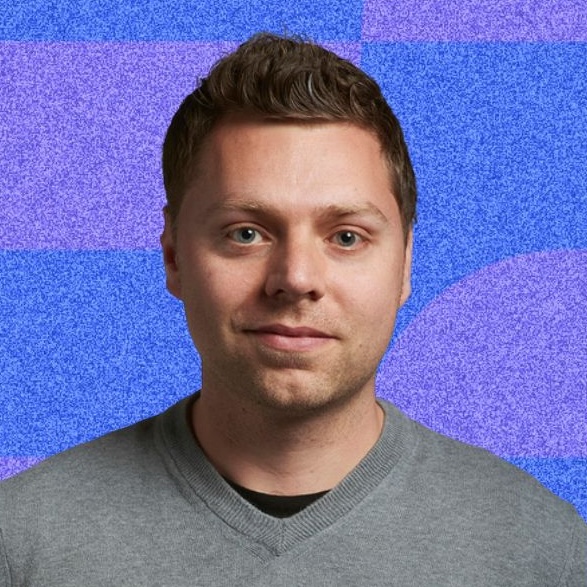Football's most unnerving managers
Hailing the continued but perhaps endangered existence of the volatile Premier League manager


Get exclusive shortlists, celebrity interviews and the best deals on the products you care about, straight to your inbox.
You are now subscribed
Your newsletter sign-up was successful
At the final whistle, a chorus of boos rains down and two guys with shoulder-mounted Steadicams run straight over to him. Slowly turning purple, hands balled into tiny, white fists, he robotically turns to his opposite number and shakes his hand with all the sincerity of a morning commuter tapping an Oyster card.
Casually threatening a production assistant on the way through to the post-match interview area, they turn on the charm long enough to snap out some clichéd soundbites and are already storming away as the final “Thank you” leaves their angry lips.
Sometimes charming, sometimes seething with hatred for anyone within a 2-metre radius, Premier League managers are rarely boring. And it would also seem that to be a manager of a team in the world’s most competitive elite football league you usually have to be pretty bloody terrifying, too.
In the old days, managers with thick wool coats and moustaches and comb-overs exuded the kind of menace usually reserved for council-estate publicans or particularly surly fathers-in-law. One particularly colourful legend about Graeme Souness, while manager of Liverpool, comes to mind. In training, Souness liked to get involved in matches – and by “get involved”, we mean kicking lumps out of his players. A shin-breaker in his playing days, his management style ran along a similar trajectory: he’d clothesline someone like Don Hutchison and leave them in a crumpled heap on the turf. “Get up!” he’d shout.
And if they did, and if they came back on the next 50-50 tackle, and hit their manager about knee-high with a tackle, they’d be in the team the following Saturday.

Things have, suffice to say, changed quite dramatically in recent years, with Sky Sports cameras leaving little room for private rough-housing without sparking a week-long social-media smear campaign. There’s nowhere left to hide, but there should always remain more than a handful of unsettlingly scary managers in top flight football. The pressure of the job demands someone who can inspire his squad under the toughest of circumstances, and it just so happens fear can be one hell of a motivator.

The Evil One
Despite managing one of the most intimidating teams in the Premier League, Jose Mourinho is one of the only managers in the country who doesn’t look like he would murder you. He’s a bit too smart to show his hand like that. Sure, his manic, rubbery mouth and predilection for mind games gives him the air of a Big Evil baddie dashed out by a True Detective spec-script hack, but he plays the game with a sense of irony and likes to strike fear into the heart of opposition on reputation alone.
Get exclusive shortlists, celebrity interviews and the best deals on the products you care about, straight to your inbox.
While, superficially, he appears a changed manager to the incendiary Special One who made housewives drool and tormented Alex Ferguson with press conference quips, he’s not really so different. The hair – and the face – is greyer, and he’s had the odd spiteful lapse in temperament (the Eva Carneiro debacle being a low point) that never would have reared its head before, but almost everything he does still comes with a nudge and a shrug and a wink. It’s only football, he seems to suggest, even when he’s doing a big cartoon sad-face in a post-match interview.
Still, he definitely looks like he could do you serious harm, and that he’s got it all planned out in his head should the need ever arise. Maybe it’s just the duplicity in his eye-wrinkles rather than an off-camera finger-across-the-throat motion, but it’s definitely there. A little twinkle of evil. Maybe that’s what makes him such a great manager: the air that he could – if absolutely necessary – disappear your body into an oil drum by day’s end. It no doubt adds a little extra gravitas to the half-time team talk.

Guttural rage
One manager who is a little less inconspicuous is Louis Van Gaal. With his long, thin head and bashed-in features, he’s got the tiny, animated eyes of a bird of prey and mannerisms that can border on sociopathic.
With bolt upright posture and cold-as-ice delivery, he appears to not so much experience emotions as attempt to show that he is actually capable of them. It all feels a bit affected and rehearsed, like you can imagine him pulling the same faces in front of the mirror in his pants (“I call thishh one ‘Guttural Rage’ – it ishh usually saved for Chrishh Smalling”).
Still, it works. There are times – especially in post-match interviews – where you can sense all of the atmosphere drain from the room and the poor journalist’s blood run cold if the Dutchman has decided he doesn’t like the question. Van Gaal turns to face his victim straight on and looks at them out of the corner of his eye while raising a single eyebrow. A tiny black microphone trembles just out of shot. He’ll reply with a menacing “So?” to a question, and the journo will wish they became a plumber instead.
In the past he’s argued with them all: countless members of the press; managers as a player; many, many players as a manager. He even put the then-best player in the world, freckled Brazilian genius Rivaldo, on the bench during the pair’s time at Barcelona to show everyone who was boss.
After Rivaldo won the Ballon d’Or in 1999, he told his manager he wanted to come off the left wing and play behind the strikers. Van Gaal nodded and told him “Right. That’s your decision.” And left him on the bench.
Literally the greatest player in the world, a man who single-handedly dragged Barcelona to success the year before, sat on his backside for stepping to one of Holland’s finest managers.
Cliches and mad fury
Out-of-work Brendan Rodgers was another manager who traded in intimidation, but of a different kind. Rarely has the Premier League seen a manager quite so odd: bursting at the seams with a selection of vocal tics, clichés and mad fury, with a caricature face that rapidly fills with blood. And although some fans were quick to call him a fraud, that only made him more dangerous: he felt like he had something to prove.
Probably his defining moment in management – and as a man – was encapsulated in the final embrace with Van Gaal at the end of Liverpool’s game with United in mid-September.
Rodgers, staring with the eyes of Hades, his great red face wobbling with incandescent rage like an angry jelly, aggressively grabbed the Dutchman’s limp gesture by the thumb. Van Gaal went for something shoulder-height and Rodgers attempted to lever him down.
His Liverpool side had just lost 3-1 and Rodgers was furious, and you could see he wanted to channel all that rage into a proper handshake.

It can be hard to believe now that the man with the driest lips in the biz, hailing from Carnlough, Northern Ireland, earned his stripes at Swansea, turning an unfancied Welsh side into a solid Premier League team who played good football.
It seemed his was the requisite amount of David Brent-cum-nutter-in-the-pub to get the job done at Anfield.
After a positive start, things were a little more difficult since his move to the big time, and have been even harder still since Liverpool have attempted to traverse a post-Suarez wilderness. Finally sacked in early October, Rodgers’ particular brand of intensity fell on deaf ears when faced with players in the suburbs of world class. Instead, the board went with an altogether more continental kind of ferocity, in the shape of Jurgen Klopp, the preeminent purveyor of 2015’s class of charm and savagery. Let’s see how that one pans out.

Angry Men
Arsene Wenger’s grumpy gallery owner and Manuel Pellegrini’s miffed undertaker aside, it generally seems to be that this season’s more successful sides have an Angry Man at the helm: Spurs’ Mauricio Pochettino and his lantern-jawed smoulder; West Ham’s Slaven Bilic, with eyes that have seen atrocities; Palace’s Alan Pardew and his bastard stepdad shtick.

The Premier League is a tough competition, and you need a hard manager to handle that, but how long until the FA turn the league’s dons into boring automatons?
Harry Redknapp, Sean Dyche, and community-copper-with-a-grudge Nigel Pearson all fell by the wayside last year, and look unlikely to ever return. English football’s governing body – with its emphasis on ‘role models’: a caustic term unfairly bestowed upon any young sportsman unlucky enough to be both human and talented – will want to stamp out anything that messes with its golden goose.
While we might be a long way from ‘Big’ Ron Atkinson having naked fistfights with his players in the Aston Villa showers, we should all savour the managers who display the same kind of anger and passion as the fans before it’s too late, because it will all be poetry and hugs at half-time before we know it…
(Images: Jamie Drew/Getty/Rex/Thinkstock)

As Content Director of Shortlist, Marc likes nothing more than to compile endless lists of an evening by candlelight. He started out life as a movie writer for numerous (now defunct) magazines and soon found himself online - editing a gaggle of gadget sites, including TechRadar, Digital Camera World and Tom's Guide UK. At Shortlist you'll find him mostly writing about movies and tech, so no change there then.